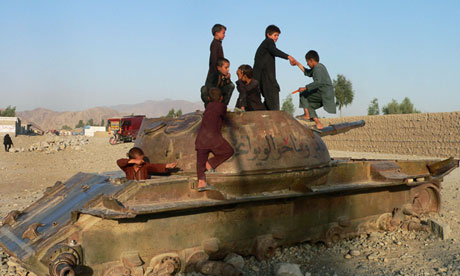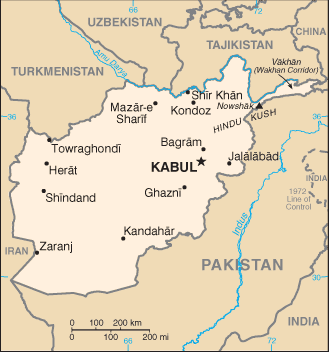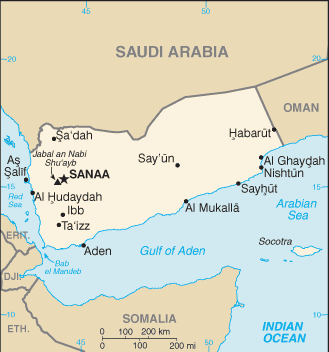http://www.guardian.co.uk/world/2012/dec/30/afghanistan-us-military-rent-land-dispute

 Which may be better for NATO, but 2012 was also the deadliest year of the occupation yet for the Afghan military, which reported1056 soldiers killed, including 906 in the last nine months.
Which may be better for NATO, but 2012 was also the deadliest year of the occupation yet for the Afghan military, which reported1056 soldiers killed, including 906 in the last nine months.
 The killing for the FC members caps a recent storming of a pair of bases around Peshawar, in which a large number of the soldiers were taken hostage. 21 of them were executed according to provincial officials. The other was critically wounded but expected to survive.
The killing for the FC members caps a recent storming of a pair of bases around Peshawar, in which a large number of the soldiers were taken hostage. 21 of them were executed according to provincial officials. The other was critically wounded but expected to survive.
http://www.businessinsider.com/al-qaeda-offers-160000-in-gold-to-anyone-who-kills-us-ambassador-2012-12
 Al Qaeda in Yemen has offered 3 kilograms of gold to anyone who kills Gerald Feierstein, the U.S. Ambassador, according to Reuters.
Al Qaeda in Yemen has offered 3 kilograms of gold to anyone who kills Gerald Feierstein, the U.S. Ambassador, according to Reuters.
 The group says the bounties are good for six months, and are three kilograms of gold for Feierstein and $23,000 for any American soldier killed while inside Yemen.
The group says the bounties are good for six months, and are three kilograms of gold for Feierstein and $23,000 for any American soldier killed while inside Yemen.
First Published 5 hours ago • Updated 5 hours ago
"We need the vote of confidence from the IMF," he told reporters. "We hope to have more consensus on the government program. We hope there are no core changes to our plan with the fund," he added. He did not say when talks with the IMF would resume.
Afghans angry at US soldiers who drove away in the night leaving rent unpaid
Only sign of huge US base is pile of rubbish and broken vehicles – and a festering land dispute in a volatile province

Afghan boys play on the remains of an old Soviet tank in the eastern city of Jalalabad. US troops have been accused of leaving behind their own 'detritus'. Photograph: AFP/Getty Images
US forces left behind piles of equipment, an unpaid rent bill and a festering land dispute that threatens to undermine the Afghan government when they moved out of a volatile corner of eastern Kunar province this year, local officials and their former landlords say.
The only clue that a base that dominated Pashengar village for years had been abandoned for good was the midnight rumble of a convoy of trucks. In the morning, locals found guards gone, buildings blown up and, scattered around what had been a forbidding military encampment, piles of detritus from years of western living in a remote, mountainous valley.
Rows of air conditioning units stuck out of a damaged wall, a giant, dilapidated generator was marooned near shipping containers and twisted, dented vehicles remained. But there was no sign of a cheque for a landlord who said years of rent, running to hundreds of thousands of dollars, was owing to him.
"They stayed six years and only paid rent for one year," said Haji Najibullah Khan, who grew up in the Pashengar house that became a US base. He said the departing US commander warned him off pushing for rent money when they met a few weeks before the soldiers drove away in the night.
A few kilometres down the road, in the centre of Naray district, the US departure was neater, with a joint base handed over to full Afghan army control. But, even here, there is anger because the base was built on a muddle of small plots shared out among 90 families from the area.
They are also claiming that years of back rent is owed by the Americans and are worried they may never see their land again now Afghan government troops are firmly entrenched. The simmering dispute threatens to undermine loyalty to troops ostensibly sent to protect the area.
Gul Rahman, the district governor, has attempted to mediate but with little success. "I met the Afghan National Army (ANA) with the elders. Now the army are staying, the people are very angry and asking for the payments they are owed, but no one is listening to them."
Land is one of the most sensitive issues in Afghanistan. During 30 years of war, many legal documents have been destroyed, landowners and their families have been killed or become refugees, and people have settled on to land to which they have no legal claim.
Haji Usman, headmaster of the Naray boys' high school and owner of about two hectares of land that is now part of the base, led a delegation to Kabul that lobbied successfully for an official investigation and recognition of the villagers' claim to the land. The army is ignoring that finding at its own risk, he said.
"The people are very angry that the ANA are not leaving," Usman said. "I don't think most people who have had their land taken would be willing to join the Taliban; this is a village under government control. But there are maybe a few, who live in more remote houses, who will join if this issue is not resolved."
Rahman, the district governor, said security problems had kept him from visiting Pashengar, but he had been looking into Khan's situation and believed a sale of the military detritus could help pay some of the rent.
"I didn't visit the house but I asked some people about it, so I know that some containers, vehicles and generators were left behind. Some were destroyed but some were OK," he told the Guardian by phone from his heavily guarded offices in Naray. "This equipment left by the Americans could make up perhaps half the rent of Haji Najibullah, or at least a quarter."
But Khan said it was mostly worthless in an area of subsistence farmers. "I can't sell any of the equipment because it is not stuff that people in the district use. I just leave it in my yard, because it's quite worthless to me."
Afghanistan's landscape is littered with rusting Soviet tanks and other military junk, a constant reminder of the Soviets' troubled decade in the country, but since 2001, foreign forces have gone to great lengths to leave no trace.
To abandon even non-military equipment is unusual and perhaps a sign of the challenges facing Naray, which lies at Kunar's northern tip. Poor and isolated, it is a place where insurgents can slip easily across the border from Pakistan or down from lawless Nuristan province, where an insurgent vice-and-virtue police holds sway in some villages.
A spokesman for the Afghan army would not comment on the situation in Naray, and the Kunar provincial governor, Fazlullah Wahedi, said he had not heard about the land disputes there.
The Nato-led International Security Assistance Force declined to comment on the situation at either base. "As a matter of policy, Isaf does not publicly discuss information pertaining to potential or pending claims," said spokesman Charlie Stadtlander.
and.......
2012 Was Deadliest Year for Afghan Military
1,056 Soldiers Killed as NATO Touts 'Improving' War
by Jason Ditz, December 30, 2012
To hear NATO talk, the occupation of Afghanistan 11+ years later is “improving” with US and NATO troop deaths having dropped somewhat, as insurgent attacks give way to a more common strategy of “green-on-blue attacks.”
 Which may be better for NATO, but 2012 was also the deadliest year of the occupation yet for the Afghan military, which reported1056 soldiers killed, including 906 in the last nine months.
Which may be better for NATO, but 2012 was also the deadliest year of the occupation yet for the Afghan military, which reported1056 soldiers killed, including 906 in the last nine months.
Afghan Defense Ministry officials attributed this shift to the increase in the number of Afghan military operations. The Taliban appears to have become more interested in targeting them directly as NATO member nations prepare for a drawdown.
In addition to the 1,056 soldiers, an estimated 1,400 police were also slain in the last 10 months, also an increase over the previous year. With NATO continuing to increase the size of the Afghan military, massive numbers of desertions remain a huge problem as well.
And Pakistan sees death toll spike in executions of police by Taliban......
http://news.antiwar.com/2012/12/30/at-least-41-killed-in-pakistan-militant-attacks/
At Least 41 Killed in Pakistan Militant Attacks
Mass Executions of Captives, Attack on Shi'ite Pilgrims
by Jason Ditz, December 30, 2012
A pair of extremely ugly militant attacks on two opposite sides of Pakistan have left at least 41 people dead, including members of the Frontier Corps (FC) and a convoy of Shi’ite pilgrims along the Iranian border.
 The killing for the FC members caps a recent storming of a pair of bases around Peshawar, in which a large number of the soldiers were taken hostage. 21 of them were executed according to provincial officials. The other was critically wounded but expected to survive.
The killing for the FC members caps a recent storming of a pair of bases around Peshawar, in which a large number of the soldiers were taken hostage. 21 of them were executed according to provincial officials. The other was critically wounded but expected to survive.
Taliban officials claimed credit for the FC executions, saying that their council of clerics gave the order, and that no demands for prisoner exchanges were considered when prisoners are caught in clashes.
The other incident took place in the southwest, where a car bomb targeted a bus full of Shi’ite pilgrims heading to Iran. 20 of the pilgrims were killed and 24 others were wounded in the attack.
Yemen branch of Al Qaeda offers bounties on US Ambassador and
soldiers.....
soldiers.....
Al Qaeda Offers $160,000 In Gold To Anyone Who Kills U.S. Ambassador
 Al Qaeda in Yemen has offered 3 kilograms of gold to anyone who kills Gerald Feierstein, the U.S. Ambassador, according to Reuters.
Al Qaeda in Yemen has offered 3 kilograms of gold to anyone who kills Gerald Feierstein, the U.S. Ambassador, according to Reuters.
At today's trading prices, 3 kilograms of gold — a little more than 96 troy ounces — is worth a little over $161,000.
The group has also offered $23,000 to anyone who kills an American soldier.
his branch of al Qaeda is considered the most dangerous existing branch by American analysts.
http://news.antiwar.com/2012/12/30/yemeni-al-qaeda-issues-bounties-on-us-ambassador-soldiers/
Yemeni al-Qaeda Issues Bounties on US Ambassador, Soldiers
Audio Recording Offers 3 kg of Gold for Killing Envoy
by Jason Ditz, December 30, 2012
In an audio recording released over the weekend, Al-Qaeda in the Arabian Peninsula (AQAP) has offered bounties to anyone who kills US Ambassador Gerald Feierstein and any US soldiers deployed inside Yemen.
 The group says the bounties are good for six months, and are three kilograms of gold for Feierstein and $23,000 for any American soldier killed while inside Yemen.
The group says the bounties are good for six months, and are three kilograms of gold for Feierstein and $23,000 for any American soldier killed while inside Yemen.
The exact details of the US deployment to Yemen are unclear. The Pentagon admitted to US troops being attacked in Aden in March, the first time they’d even admitted troops were in Yemen at all. Since then special forces have deployed in “advisory” roles.
The US embassy has yet to comment on the bounties, but has repeatedly labeled AQAP as the “most dangerous” al-Qaeda auxiliary in the world.
And Egypt to resume talks with IMF in January as currency gets pounded and reserves run low.......
http://news.yahoo.com/egypt-resume-talks-imf-january-103703975.html
CAIRO (AP) -- Egypt's prime minister says his country will resume talks in January with the International Monetary Fund over a $4.8 billion loan, after they were suspended during this month'spolitical turmoil over the now-adopted constitution.
Egypt is grappling with a crippling budget deficit and dwindling foreign reserves. The government hopes the loan will attract needed foreign investment.
Talks with the IMF were derailed amid large rallies organized by opponents of the constitution. The protests turned violent, leaving at least 10 dead.
The government suspended the talks which would have resulted in austerity measures, surely to add to public discontent.
On Sunday, Prime Minister Hesham Kandil said his government will start a public discussion of the plan and hopes that there will be "no drastic changes."
and....
http://www.sltrib.com/sltrib/world/55546582-68/currency-bank-central-foreign.html.csp
Egypt’s currency falls to a new low
Economy » Central Bank tries to restore stability to market.
By SARAH EL DEEB
| The Associated Press
Cairo • The Egyptian pound fell to a record low against the dollar Sunday as the central bank stepped into the market to try to stabilize trading and stop an anxious public that has been buying up dollars for fear of an even bigger dive in the local currency, bankers said.
The pound slid more than 3 percent on the first trading day after the central bank introduced a new dollar auction system that bankers said appeared designed to allow a "controlled devaluation" of the Egyptian pound. Many economists consider the pound overvalued and propped up by the government, which has used fast-dwindling foreign currency reserves to keep the value artificially high.
Khaled Abdel-Hamid, from Union National Bank of the UAE in Egypt, said the central bank is now directly involved in trading to stabilize the market and will probably help stop speculation on the currency by panicked buyers.
Egypt is grappling with a crippling deficit and foreign reserves have fallen to $15 billion from $36 billion in 2010, before the uprising that toppled Hosni Mubarak.
The central bank announced the new auction system a day earlier, urging citizens to "ration usage" of foreign currency in favor of the Egyptian pound. It said that foreign currency reserves, which have been hemorrhaging for nearly two years, are at a "critical" level — the minimum needed to cover foreign debt payments and buy strategic imports.
Under the new auction system, the central bank sold all $75 million on offer to banks on Sunday.
As the currency weakened, the prime minister said Egypt will resume talks in January with the International Monetary Fund after Cairo suspended its request for a $4.8 billion IMF loan during the recent political turmoil over the disputed constitution.
Fearing even greater political turmoil, President Mohammed Morsi called off tax hikes and spending cuts that were part of the economic program it submitted to apply for the IMF loan, scuttling the loan request itself. But now that the constitution has been approved in a public referendum, the government has again turned its attention to economic reforms.
Many had expected a currency devaluation as part of the IMF deal, which had gained preliminary approval in November ahead of the outbreak of the political crisis and mass street protests over the constitution.
Over the past week, fears of an imminent currency devaluation led to a rush on dollars, putting further pressure on the Egyptian pound. The worries were fuelled in part by the government’s move to cap the amount of foreign currency people can take with them as they leave the country.
Two bankers familiar with the new auction system said it brought the exchange rate to 6.365 pounds to the dollar — a loss of nearly 3 percent of its value — from 6.19 pounds to the dollar on Thursday, the last trading day.
"This is a kind of controlled devaluation," said one of the bankers from a state bank who had attended meetings with the central bank governor to discuss the plan.
"And this is only in the first four hours," he added, speaking on condition of anonymity because he was not authorized to speak to the media.
According to the new plan, retail buyers will pay up to 2 percent commission on purchasing dollars from the bank. It also limits banks from holding more than 1 percent of their capital net worth in foreign currency, down from 10 percent.
"This will create new supply," Abdel-Hamid said.
Both bankers said it remains to be seen how the new auction system will help stabilize Egypt’s currency as the market remains worried about the government’s ability to draw up and implement reforms in a highly polarized political environment.
Prime Minister Hesham Kandil tried to address those concerns, calling for national unity in the face of tough economic reforms needed to secure the IMF loan and buoy investor confidence.
"We need the vote of confidence from the IMF," he told reporters. "We hope to have more consensus on the government program. We hope there are no core changes to our plan with the fund," he added. He did not say when talks with the IMF would resume.
At another venue, Finance Minister Mumtaz el-Said told reporters that the governor of the central bank was meeting with heads of banks to discuss the outcome of the auction.
"The alternative to devaluing the pound may be to print money," el-Said said. "We refuse this ... Since 2003 till now, we never printed money." Devaluing the pound, he added, could add to the government burden and the budget but will also boost the government’s foreign currency earners, such as Suez Canal revenues.
No comments:
Post a Comment